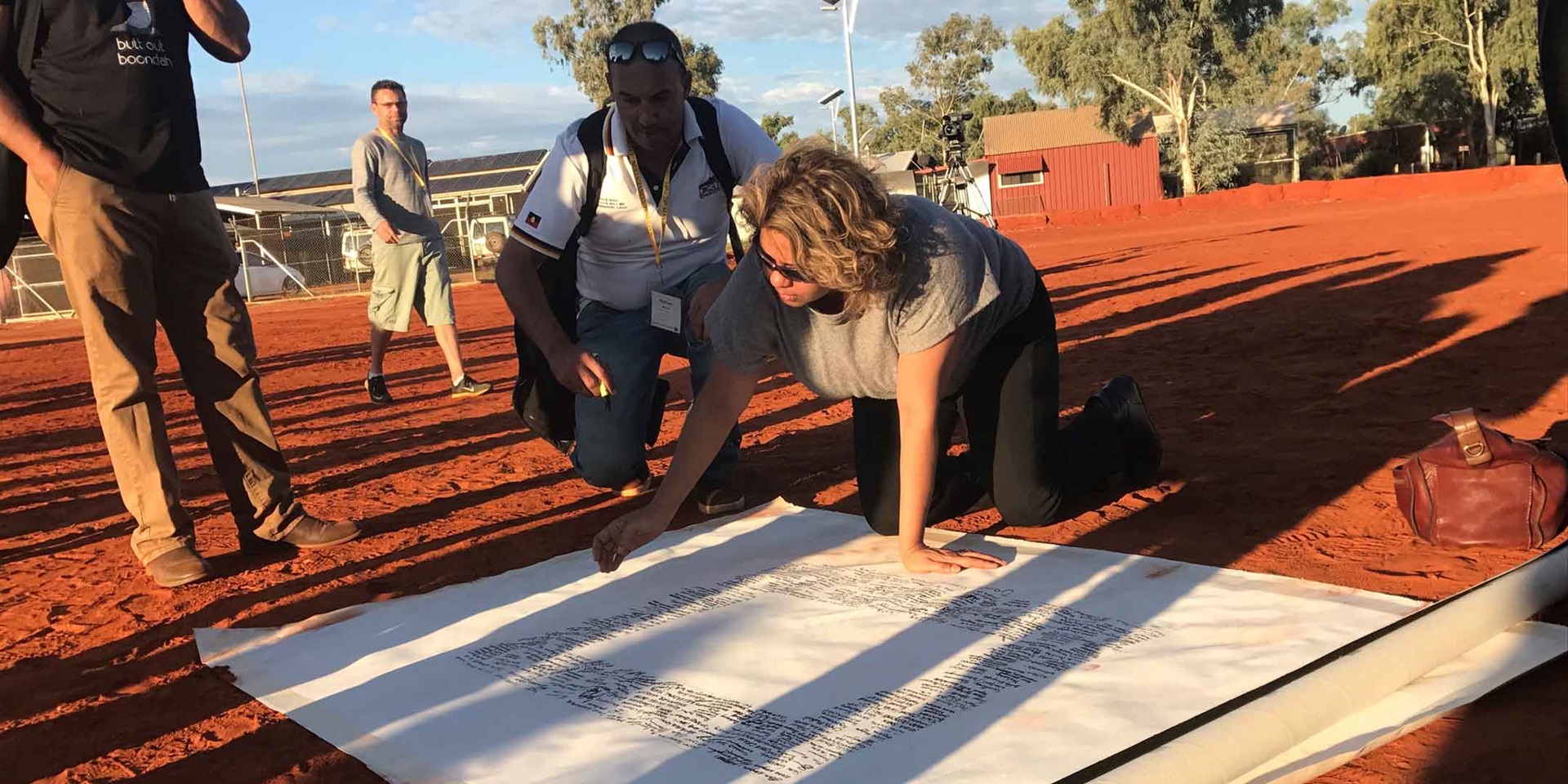Overview
In 1901, Australia celebrated Federation with the proclamation of the Australian Constitution. A document that upholds our political and legal systems and unified the States as the Commonwealth of Australia. British control of the lands and waters of Australia was confirmed.
Australia’s First people were not recognised, their rights and customary laws disregarded and ignored. It led to dispossession, displacement, disease, violence, marginalisation - the effects of which continue in the present day. Aboriginal and Torres Strait Islander people face discrimination, racism and experience significant socioeconomic disadvantage and health inequality. The continual fight to regain ancestral lands and the rights and freedoms for Aboriginal and Torres Strait Islander People continues to the present day.
Students conduct self-guided inquiries into the actions taken by Aboriginal and Torres Strait Islander and non-Indigenous peoples in regaining the rights and freedoms that were lost with the British colonisation of Australia.
Key inquiry question:
What measures have Aboriginal and Torres Strait Islander peoples used to increase public awareness of their struggle for equality?
As a class engage in the artwork Solid Rock in Solid Rock Sacred Ground, Possession Island, Queensland by Shane Howard from the Museum Collections. Conduct a class discussion on the history and significance of the artwork, the lyrics of the song and the message that is being communicated in the artwork. Develop questions about protest songs and their ability to communicate important messages on social justice and environmental issues.
Listen to the following protest songs and conduct research into the events that are being described.
- From Little Things Big Things Grow by Kev Carmody and Paul Kelly. A song that explores the Wave Hill walk-off and the Gurindji people’s struggle for land rights.
- Took the Children Away by Archie Roach about the Stolen Generation.
Explore the music of Yothu Yindi and the band leader Mandawuy Yunupingu. The music and the band brought to world attention the struggle of Aboriginal and Torres Strait Islander peoples. Examine the significance of this song and the achievements of Mandawuy Yunupingu, earning Australian of the Year in 1993.
As a class discuss the phrase 'a fair go'? The Australian identity has developed throughout history to embody a value system encouraging equity and equality. But who is left out of this picture?
Engage with the Uluru Statement of the Heart online and read the following extract:
"We call for the establishment of a First Nations Voice enshrined in the Constitution... In 1967 we were counted, in 2017 we seek to be heard". In 1967, a YES response to the referendum for recognising Aboriginal people in the census changed the Constitution. In 2020, a referendum for constitutional change to establish a 'First Nations Voice' is still being debated.
In groups create a protest song and/or dance or poem that responds to the Uluru Statement of the Heart and proposed Constitutional change.
Main image: Denise Bowden, CEO of Yothu Yindi, signing the Uluru Statement from the Heart, in Central Australia, 29 May 2017, Australian Human Rights Commission.
